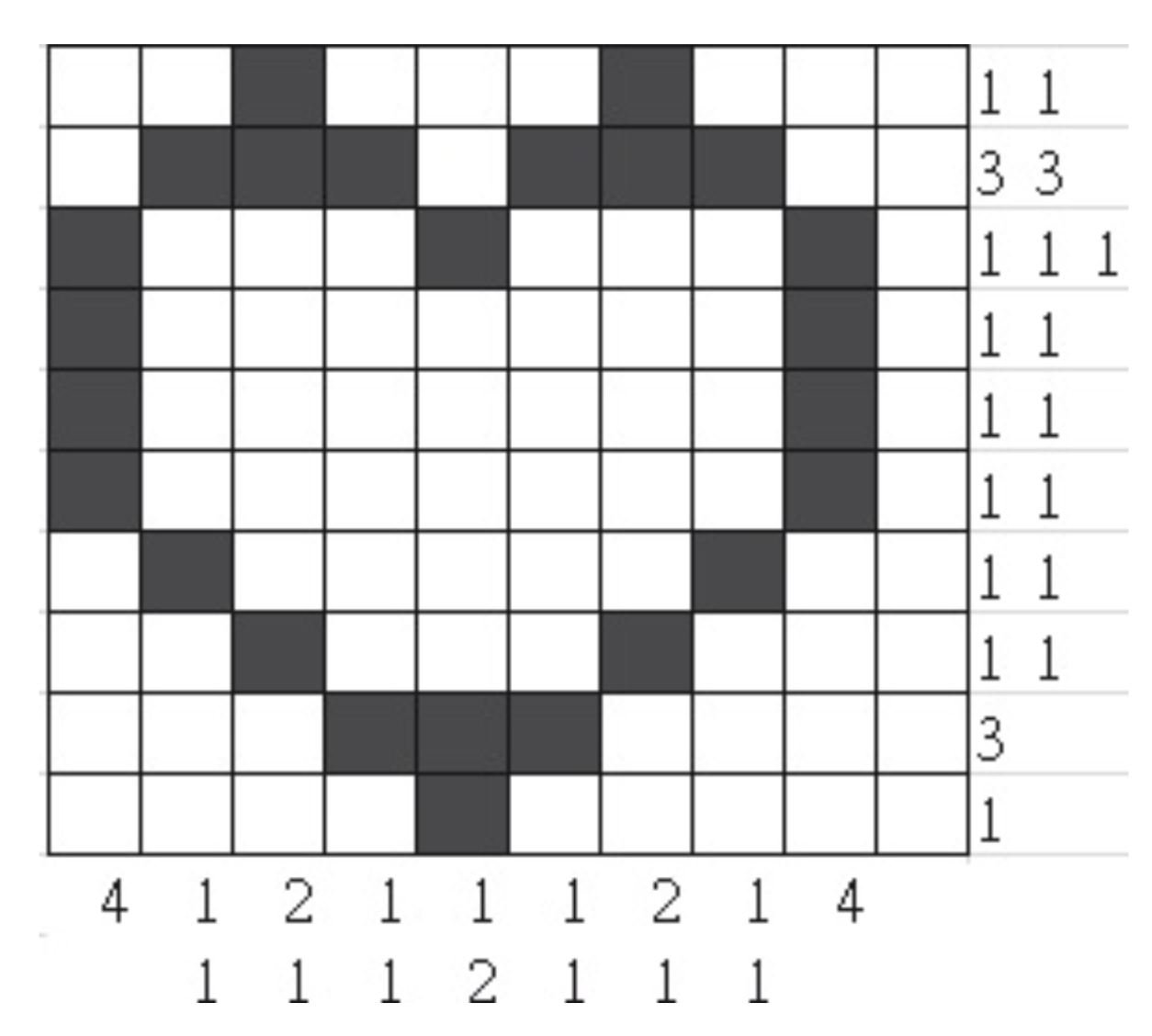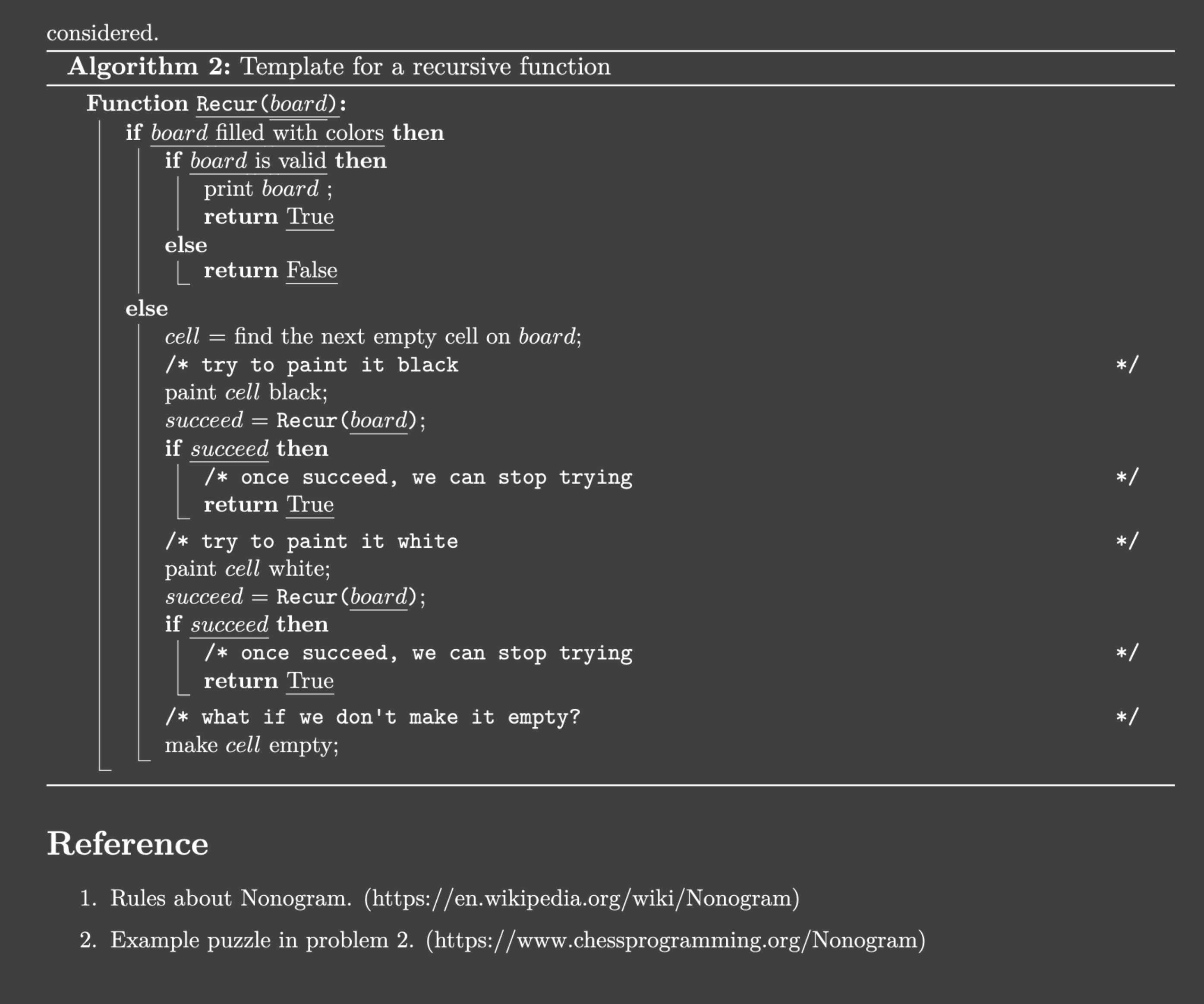
Greedy Alogrithm

How to measure the number of segments?
- Fills on the edge doesn't count
|Line|# Segments|Fills|Holes| |—|—|—|—|—| |[0,0,0,0]|0|[]|[1,2,3,4]| |[1,0,0,0]|1|[0]|[2,3,4]| |[1,1,0,0]|1|[0,1]|[2,3]| |[0,0,1,0]|1|[2]|[0,1,3]| |[1,0,1,0]|2|[0,2]|[1,3]| |[0,1,1,0]|1|[1,2]|[0,3]| |[1,1,1,0]|1|[0,1,2]|[3]| |[0,0,0,1]|1|[3]|[0,1,2]| |[1,0,0,1]|2|[0,3]|[1,2]| |[0,1,0,1]|2|[1,3]|[0,2]| |[1,1,0,1]|2|[0,1,3]|[2]| |[0,0,1,1]|1|[2,3]|[0,1]| |[1,0,1,1]|2|[0,2,3]|[1]| |[0,1,1,1]|1|[1,2,3]|[0]| |[1,1,1,1]|1|[0,1,2,3]|[]|
- Need a function that
f(arrFills) = # of segments- idea ON-OFF flip flop
- Add one when
0->1occurs; reset when1->0 - Time complexity: O(n)
- Add one when
- idea ON-OFF flip flop
Create 2D array with double pointer and one malloc call
Git tag
- Add tag ```sh git tag -a v0.0.1 -m "my version 1.4" ```
- Push tag ```sh git push origin v0.0.1 ```
Header files
It is not recommended to put function definitions in a header file. Ideally there should be only function declarations. Purpose of this code is to only demonstrate working of header files.
Implementation of dynamic 1D array
Usage
https://stackoverflow.com/questions/3536153/c-dynamically-growing-array
Use realloc to increase or shrink the size.
How to read line in a file
Add test file
'input_3.txt'
Reference
- 2D array construction. [GreekforGeek]
- Git tag. [Blog]
- Integer to string:
itoa. [Blog] - Compare with
memcpy[Tutorial]- 不能用於 struct [reason]
- Memory management in C [tutorial]
- fscanf: reading file in C. [greekforgeek]
- How to pass 2D array. [GreekforGeek]
